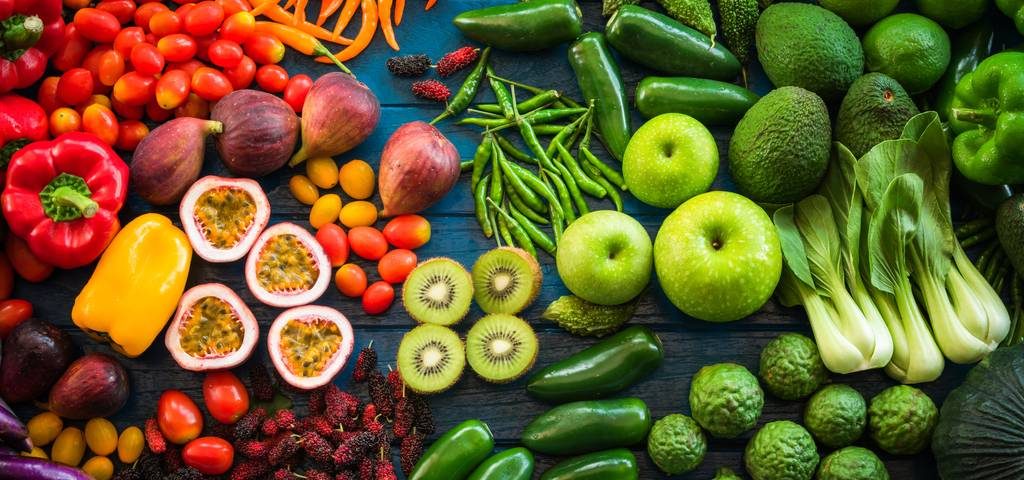Women who eat several servings of fruits and vegetables a day have a lower risk of having breast cancer — especially the aggressive subtypes — according to a large follow-up study.
The study, “Fruit and vegetable consumption and breast cancer incidence: Repeated measures over 30 years of follow‐up,” was published in the International Journal of Cancer.
Since fruits and vegetables are rich in potentially anti-cancer nutrients including fiber, vitamins C and E, and carotenoids — natural pigments responsible for the red/orange/yellow color in food that act as antioxidants in the body — higher consumption has been hypothesized to reduce cancer risk.
As part of their recommendations to reduce the risk of cancer, the World Health Organization suggests eating more than 400 grams of fruits and vegetables per day as part of a healthy diet, and the American Cancer Society recommends at least 2.5 cups of vegetables and fruits a day.
While increasing evidence suggests that eating high amounts of vegetables and fruits reduces the risk of breast cancer, the benefits of specific fruit and vegetable subgroups, and their association with aggressive subtypes of breast cancer, remain poorly understood.
“This research provides the most complete picture of the importance of consuming high amounts of fruit and vegetables for breast cancer prevention,” Maryam Farvid, a research scientist in the department of nutrition at Harvard T.H. Chan School of Public Health and the study’s first author, said in a press release.
To clarify this, researchers at Harvard T.H. Chan School of Public Health analyzed the data of almost 200,000 women from the Nurses’ Health Study I and II who were followed for several years.
Participants in the Nurses’ Health Study, which included 88,301 women, starting in 1980, and the Nurses’ Health Study II, which included 93,844 women, starting in 1991, completed a diet questionnaire — the Semi-Quantitative Food-Frequency Questionnaire — at the beginning of the study, and every four years thereafter.
The diet questionnaires assessed the frequency of consumption for a specified serving of each food item, in which a serving is defined as one cup of raw leafy vegetables, half a cup of raw or cooked vegetables, or half a cup of chopped or cooked fruits.
Questionnaires given every two years assessed other potential breast cancer risk factors — such as age, weight, physical activity, smoking, history of breast cancer in the family, oral contraceptive use, alcohol consumption, and menopause — as well as the occurrence of breast cancer.
Participants were followed for a mean of 23.7 years, in which 10,911 cases of aggressive breast cancer — those that grow and spread more rapidly — were documented.
Researchers found that women who ate more than 5.5 servings of fruits and vegetables per day had an 11% lower risk of breast cancer than those who ate 2.5 or fewer servings.
Higher consumption of yellow/orange vegetables, cruciferous vegetables — such as broccoli and cauliflower — green leafy vegetables, as well as fruits and vegetables rich in vitamin C, alpha-carotene (orange color), and beta-carotene (red color) were associated with a lower occurrence of breast cancer.
Further analysis on fiber content — since high intake of fiber was previously associated with reduced breast cancer risk — suggested that the observed benefits of at least cruciferous vegetables and beta-carotene-rich fruits and vegetables were independent of their fiber content.
This suggests that besides fiber, other elements in these foods, such as antioxidants and micronutrients, may also be important in reducing breast cancer risk.
The majority of tumors were classified by hormone receptor status and molecular subtype. In this way, researchers found that eating more fruits and vegetables was particularly associated with a lower risk of more aggressive tumors, including estrogen receptor-negative, HER2-positive, and basal-like tumors.
The lower risk of breast cancer was significantly associated with high consumption of fruit and vegetables eight or more years before diagnosis, “which is consistent with an effect acting in the early stages of carcinogenesis [cancer development],” the researchers wrote.
“While a diet with lots of fruits and vegetables is associated with many other health benefits, our results may provide further impetus for women to increase their intake of fruits and vegetables,” said Heather Eliassen, the study’s senior author and an associate professor at Harvard Medical School and Harvard Chan School and associate epidemiologist at Brigham and Women’s Hospital.

